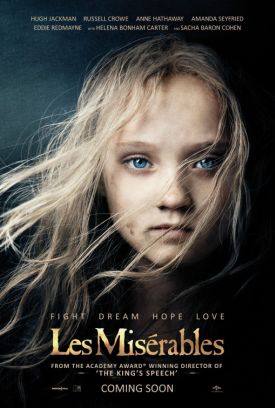Love Actually
At one point in Love Actually, the first directorial outing of Richard Curtis, who wrote the screenplays of Four Weddings and a Funeral, Notting Hill and Bridget Jones’s Diary, the prime minister of Britain, played by Hugh Grant, chooses the occasion of a joint news conference with the American president, played by Billy Bob Thornton, to deliver an insulting speech in favor of keeping little Britain out of the sphere of influence of a bullying United States. Doubtless this will prove a real crowd pleaser at home, where anti-Americanism is on the rise, though it’s somewhat less likely to go down a treat with American audiences. The point is, however, that it is sheer fantasy. There is a reason why remarkable scenes like this literally never happen in real life, and it is that any politician who couldn’t resist the temptation to indulge such a moment of personal pique would never make it to the cabinet, let alone the premiership.
But Curtis doesn’t care about this because, like his protagonist, he is determined to indulge his fantasy, no matter the cost. The main fantasy here is one of screwing the help. At least since the 18th century, when Samuel Richardson’s Pamela tackled the theme in a serious way while Oliver Goldsmith’s She Stoops to Conquer did so in a comic, the erotic potency of the idea of sex between master and servant has been recognized. We have seen it recently in Secretary, which had the happy thought of joining a Cinderella fantasy for the gals with a Pygmalion fantasy for the guys and wrapping it all up in benign sado-masochism. Only last week, Anthony Hopkins was having his intellectually imperious way with Nicole Kidman’s less-than-persuasive janitress in The Human Stain.
Lurking not-too-far in the background of The Human Stain was Bill Clinton’s now well-known relationship with a certain White House intern — a relationship which may also have influenced Curtis. Only in Love Actually, he decided to make his Monica figure, who is called Natalie (Martine McCutcheon) and who is the tea-lady at Number 10 Downing Street, into the big boss’s one true love. Of course, the improbability of true love growing in such conditions is scarcely less than that of a Prime Minister’s telling off a President in public. It’s the kind of thing that only a lovesick youth of 20 or so, like Monica herself, could believe in. Not being a love-sick 20 year-old himself, Curtis must have known this.
If so, it may have been in order to make the scenario sound more plausible, that he added to this story a number of parallels, including relationships between the Prime Ministerial brother-in-law (Alan Rickman) and his secretary (Heike Makatsch), a writer (Colin Firth) and his Portuguese cleaning lady (Lúcia Moniz) and a washed up pop star (Bill Nighy) and his manager (Gregor Fisher). But it hard for me to see how he could have supposed that so many examples of the Jovian tendency to slum-it with the serving-wenches would have made the central situation seem less rather than more like a fantasy. In any case, he has compounded the error by inserting into the midst these stories at least three more which are patently fantastical in other ways.
In one a nerdy 11-year old (Thomas Sangster) who has recently lost his mother wins the affection of the coolest girl in his class with the help of his step-father and his mother’s widower (Liam Neeson). In another, a nerdy 21 year-old (Kris Marshall) has a wet-dream-come-true when four gorgeous roommates in Milwaukee, where he has come in search of American pulchritude, invite him to move in on his first night in town: “We just have a little bed and no couch, so you’ll have to share with all three of us — and we can’t even afford pajamas.”
Again, Curtis cannot not have known that we know that this kind of thing only happens in the worst kind of porn movies, so I take it he is offering it up to us — without the porn — as a sort of joke at his own expense. He also plays it off against yet another romance between two absurdist porn stars Judy (Joanna Page) and John (Martin Freeman), who despite their on-set cavortings are in real life so shy they can hardly dare to ask each other out for a drink.Wouldn’t it be nice to think that such things happen? Wouldn’t it be nice if bachelor prime ministers fell in love with their tea ladies? But quite what is the point of reminding us of the absurdity of this romantic dream by multiplying examples of it in the same film I find it impossible to guess. True, there are one or two counter-examples of blighted and frustrated love, including the misery of the prime minister’s sister (Emma Thompson) when her husband strays with the secretary, to ballast the balloon, but it is not enough to bring it back down to earth.
Discover more from James Bowman
Subscribe to get the latest posts to your email.






